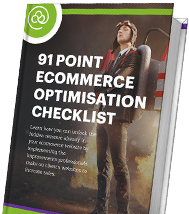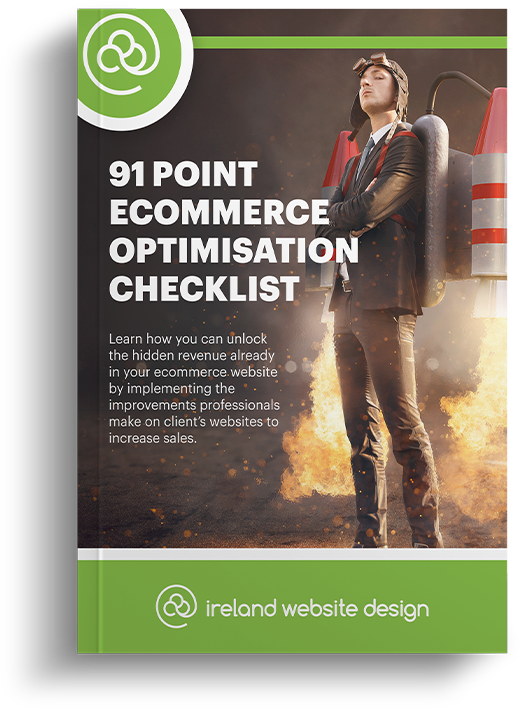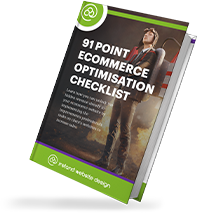It would be hard to overstate the importance of WordPress in helping small and medium-sized businesses create sleek, modern websites. The numbers speak for themselves: currently, 45.8% of all websites are WordPress sites.
WordPress’s popularity isn’t hard to understand. It’s an easy-to-use and competitively priced product that allows anyone to become a website designer and developer — no coding skills required. While WordPress didn’t invent ideas like the WYSIWYG editor and drag-and-drop functionality, it uses tactics like these to offer unwavering user-friendliness.
It’s also known for promoting search engine optimisation (SEO) by offering dozens of tools, tricks, and plugins to support your SEO efforts. WordPress’s SEO tools follow the same user-friendly principles on which the website was founded, allowing anyone to become a WordPress SEO expert.
In this blog, we’ll walk you through the top tools that WordPress SEO services use to help their clients rank higher in search engine results. When you understand how to use these tools, you’ll be well on your way to qualifying as a bonafide WordPress SEO expert.
A brief history of search engine optimisation on WordPress
Since its founding in 2003, WordPress has allowed countless bloggers, businesses, and organisations to reach their audiences, display their products, and make money online.
Interestingly, the advent of WordPress coincided with an important step (or, some might say, misstep) in the world of search engine optimisation. In the same year, Google launched AdSense, which placed ads on published blogs and websites. AdSense encouraged spammy content, as publishers realised they could use stolen or poor-quality content to get traction for their ads.
Search engines had to become more discerning, meaning bloggers and website owners needed to use higher-quality content.
Along with the dozens of other ways WordPress has supported website creators over the years, it offers search engine optimisation tools. The WordPress SEO plugins and tools make it easy to create content that appeals to both humans and search engines without specialist SEO expertise.
What is search engine optimisation, and why is it important?
Search engine optimisation means improving your website’s content, image descriptions, page load speed, and other factors so that it’s more attractive to search engines like Google. The websites that best meet search engines’ content requirements will rank higher in the search results.
What makes a website more attractive to search engines?
Google, Bing, Yahoo, and other search engines are continually tweaking their search algorithms to encourage websites to deliver higher-quality content to their visitors. Search engines give priority to websites that have:
- High-quality content
- A healthy number of relevant keywords
- Mobile-friendly responsiveness
- Fast-loading pages
- A secure, accessible design
- Reputable backlinks
- Properly optimised images and multimedia elements
- Good user engagement metrics (like how long users spend on the website)
- Fresh, regularly updated content
- Well-organised structure and navigation
How does search engine optimisation help my business?
When the elements above are included in your website, it’s more likely to enjoy better placement on search engine results pages. Higher search engine rankings allow more people to find and visit your website and, hopefully, convert to sales, signups, or bookings.
Built-In WordPress SEO tools to make your website SEO-friendly
If you run a WordPress site, you can use any of the built-in features discussed below to rank higher on search engine results pages. The tools we discuss are the same ones WordPress SEO experts use to improve search engine results for their clients. The best part is, you can use them without the cost of hiring a WordPress SEO consultant.
WordPress SEO Tip 1: SEO plugins
WordPress sites enjoy access to over 60,000 free plugins to help you make your website more functional and engaging. SEO plugins are specifically focused on boosting your SEO efforts. Popular plugins include Yoast SEO, All in One SEO Pack, and Rank Math.
Each SEO plugin lets you run an on-page SEO audit, auto-generates your XML sitemap, and allows you to integrate your social media posts and web page content seamlessly. They’ll also help you optimise your meta tags (like image descriptions, web page descriptions, and more) and manage your onsite link and backlinks.
WordPress SEO Tip 2: SEO-friendly permalinks
With a WordPress website, you can customise your permalink structure. That means that WordPress allows you to create a permanent link to each of your web pages (for example, www.mywebsite.ie/subscriptions) that’s easy to read and understand.
Long strings of letters and numbers are meaningless to human readers. With a WordPress site, your SEO-friendly permalinks are more concise and attractive to humans and search engines alike.
WordPress SEO Tip 3: XML sitemaps
With a WordPress website, you have access to auto-generated XML sitemaps. Search engines like websites that are well-organised and easy to navigate, and with an XML sitemap, search engines can easily scour and index the content on your site.
WordPress SEO Tip 4: Customisable meta and title tags
The pages on your WordPress website should have meta and title tags. These are mini descriptions of each page, and search engines will look for accurate, relevant meta and title tags for every page on your site.
In the past, Yoast SEO was the best way to provide meta and title tags on a WordPress website. But WordPress developed its own tool for setting custom meta descriptions for your website pages and blog posts. You should include keyword(s) in this snippet and give a brief overview of the page.
If you don’t optimise your meta and title tags, search engines will write one for you. Usually, the search engine will duplicate content found in the first few paragraphs of the page text, which isn’t always ideal. It’s best to write your own titles and descriptions to contain as many keywords as possible and highlight the information you want.
WordPress SEO Tip 5: Image optimisation
Every image on your WordPress site should include an image description. Image descriptions help search engines find and understand the images on your page. Plus, they improve website accessibility and help your graphics rank in image searches.
WordPress allows you to add a custom description for each image on your website. Don’t leave them blank! Optimising your images is a simple way to boost your search ranking.
WordPress SEO Tip 6: Canonical URLs
Canonical URLs may sound technical to the layperson, but they’re essential for avoiding duplicate content on your website.
Essentially, canonical URLs have been tagged to show search engines which version of a web page is the latest and greatest. That way, the search engine doesn’t index an older version of the same web page, and your visitors are sent to the correct version.
WordPress websites enjoy canonical URLs automatically and free of charge.
WordPress SEO Tip 7: Breadcrumb navigation
Many WordPress site themes include breadcrumb navigation – that is, an additional line of navigation that shows visitors which pages they’ve clicked on, like a little trail of links leading to the page they’re on.
For websites with deep or hard-to-understand navigation, breadcrumbs can help create a user-friendly experience, which is critical for SEO.
WordPress SEO Tip 8: Permalink redirects
Sometimes, you may need to remove a page from your WordPress website permanently. But backlinks to that page may be scattered throughout the internet.
When users click a link to a removed web page, WordPress will automatically send users to a new or replacement page of your choice. That way, visitors (and search engines) won’t see broken links or an unhelpful “404 Not Found” error screen.
WordPress SEO Tip 9: Content categories and tags
WordPress lets you organise your content with categories and tags. Blogs and web pages can be tagged according to their topics, allowing users to find related pages on your site.
Tags and category titles usually include a keyword that’s relevant to your site, which allows search engines to see that your website is chock full of information related to that keyword.
When you’re composing a blog or web page, WordPress lets you tag that page with an existing category or create a new one. Organising your pages and blogs by category and topic makes them easier to navigate for readers, search engines, and you!
WordPress SEO Tip 10: Mobile responsiveness
Modern WordPress themes are mobile responsive, meaning they’ll load differently (and look better) for users who access them on a mobile device.
Mobile responsive design is crucial for search engine optimisation, but it’s almost impossible to develop it without coding skills. Luckily, WordPress makes it easy by offering themes with mobile responsiveness baked in.
If it’s been a few years since you’ve updated your WordPress theme, you should do so soon. An updated theme will have recent website design updates like mobile responsiveness and accessibility, and updating your theme will improve your search engine standing.
WordPress SEO Tip 11: Performance optimisation
If your website loads slowly, humans and search engines bounce quickly. WordPress helps you fix performance issues like slow load times with tools like caching plugins and image compression.
WordPress sites can also avail of accelerated mobile pages (AMP), a Google-backed project that helps web pages load faster on mobile devices.
Modern search algorithms prioritise websites with the best user experience, so don’t overlook the importance of website maintenance. When your website performs well, visitors will enjoy a stellar user experience.
WordPress SEO Tip 12: Social sharing features
WordPress themes and plugins let you create social posts from your blogs or other website content. That makes it easy to boost your site’s visibility on social media and support your SEO efforts.
In WordPress, your social media channels are linked to your website. Creating a post within WordPress will automatically publish it to your social platforms of choice—no need to log in and post them manually.
WordPress SEO Tip 13: Content management
WordPress SEO specialists will tell you that it’s critical to organise, categorise, and update your content for search engines.
WordPress is a content management system, so it’s easy to edit, reorganise, and republish your content. Maintaining fresh, relevant content on your website will help attract search engines and earn you higher search results rankings.
Should you hire a WordPress SEO consultant?
WordPress does a great job of making search engine optimisation as easy to understand and execute as possible. But SEO is pretty technical; it takes time and persistence to see results.
Many businesses hire a WordPress SEO consultant to undertake all the search engine optimisation for their brand’s website. WordPress SEO services usually include conducting keyword research, defining your target audience, and creating an SEO plan for your website.
Benefits of hiring a WordPress SEO agency
Hiring a WordPress SEO company allows you to:
- Work with WordPress SEO specialists who have undergone training and certification
- Conduct data-driven keyword research
- Remove the headache of SEO from your daily tasks
- Streamline content creation and ensure laser focus on keywords
Expert SEO services help you ensure your SEO campaign is data-driven and informed. “Guesswork” and “hunches” are removed from the equation. Instead, you’ll set clear, achievable SEO benchmarks and receive solid guidance on how to reach them.
WordPress search engine optimisation is a specialist subject. If your website is built on WordPress, you shouldn’t hire just any crowd of SEO consultants. Make sure the SEO agency you hire employs WordPress SEO experts.
How to skip the WordPress SEO specialists with a DIY approach
Using the tools described above, you can become a self-taught SEO specialist. They’re free and already included in your WordPress site. Mastering them is simply a matter of learning and practising.
The internet is awash with WordPress SEO education, free and paid. WordPress offers tutorials, starting with the basics, that are open and free, and you can find instruction from countless other sources.
You can audit your SEO efforts for free, too. A quick Google search for “free WordPress SEO audit” will help you find plugins and WordPress SEO consultants that offer auditing services at no charge.
The best way to become adept at optimising your WordPress website is to practise. Log in to your WordPress site and explore its SEO tools. When you find a term or metric you don’t understand, look up the answer online. Then continue exploring, learning, and practising until you’re as skilled as a trained WordPress SEO consultant.
Sign up for a WordPress SEO audit
At Ireland Website Design, we’ve helped dozens of businesses improve their search page rankings and sell more products.
We’re WordPress SEO experts with over a decade of WordPress-specific experience boosting websites on search engine results pages.
We start with an SEO audit to pinpoint what’s missing in your current on-page and technical SEO campaign. Then, we create a plan to focus your keyword strategy, improve your content, find backlink opportunities, and fix technical SEO problems on your website. We’ll set metrics for success and work with you to meet them.
Learn more about our SEO services here, or talk to the team to discuss your SEO goals.




